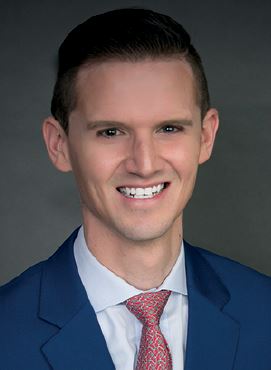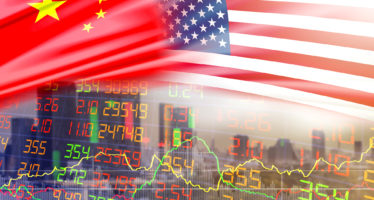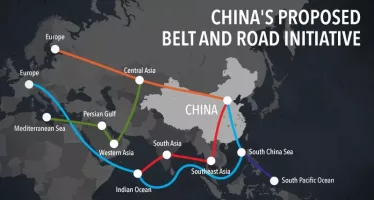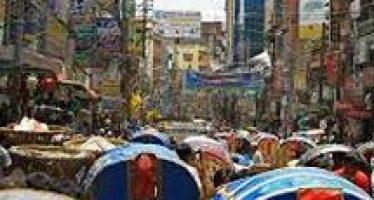Harvard Business School Impact-Weighted Accounts: Accounting as a Force for Humility and Prosperity
Amid the immeasurable human tragedy and losses from the COVID-19 pandemic, there are innumerable lessons to be learned.
While it may seem callous to derive such lessons from the disaster so early, finding meaning has been added as a sixth critical step in the grieving process. Thus, I shall propose two lessons for developed economies and how we might act on those lessons using a new measure of accounting.
The first lesson is a reassessment of humanity’s pre-eminence relative to the natural world. Over the course of 20th century, we effectively tamed infectious disease with the discovery of antibiotics and vaccines which resulted in huge decreases in infant and child morality and increases in life expectancy. We invented flight, put a man on the moon, and built the means of communicating instantaneously with all corners of the world. This is not to disregard the devastating effect of HIV and AIDS globally, however, even there human ingenuity produced medications that transformed it from an acute fatal disease into a chronic managed long-term disease.
Even amid expert warnings about rising antibiotic resistance, climate change, pollution, and potential pandemics, there was always a confidence in the power of human ingenuity to come up with solutions for all of these challenges. Nature, it seemed, had been conquered.
The COVID pandemic has caused a dramatic reckoning with that thinking. In less than four months, an unheard of disease has spread all around the world, effectively halted huge segments of our economy, placed billions under lock-down, sickened millions, and killed hundreds of thousands. No facet of our prior life is untouched.
“Instead of viewing labour as expendable and an expense and taxation as something to be minimised or avoided, this pandemic exposes the critical role that workers and the government play in societal stability.”
Across developed countries, panicked shoppers watched as staples like toilet paper and flour were emptied from shelves for weeks and powerful businesses were forced to shutter entire operating segments. Humanity is now left with a profoundly greater understanding for the fragility of our economies, our livelihoods, our health, and way of life.
We have learned how dismissals of threats that seem disconnected from our lives, such as a disease emerging on another continent, can have devastating consequences. The decades of warnings of climate scientists about the devastating effects presented by climate change are now more salient; perhaps now we will begin to seriously consider the direct impacts that we are having on our natural world and listen to the experts instead of treating our environment as a great commons to be exploited.
One of the biggest challenges to enacting climate action is that the environmental damage and impacts on human health from climate change are not intuitively understood by business leaders and investors. Therefore, a system is needed to effectively communicate the complexity of language and measurement of climate change issues to the business community.
That is the power of impact-weighted accounts, which seek to convert organisational impacts into monetary terms. In this way, the negative externalities of corporations or investors today are translated from an esoteric measure into a real monetary cost that is being imposed on others. Further, these impacts can be compared between organisations and the degree of the “free meal” enjoyed by the actors and true cost of production becomes apparent. In this way, armed with the newfound knowledge of our own fragility, we may foster a greater respect for the natural world.
The second lesson is on interdependence within society. Critiques of late capitalism have remarked at the unequal accrual of benefits to owners of capital versus labor leading to starkly bi-furcating inequality and standards of living among the lower and upper classes. American capitalism, in particular, has been deemed particularly ruthless and cruel given its lack of a social safety net and guarantee of healthcare amid historically unprecedented economic wealth. Indeed, it is not that these are unaffordable programmes; rather, as a society, we do not care to solve these challenges given the bias toward individualism and myth of the self-made person.
In this paradigm, those who are wealthy are revered as the smartest or most talented and, implicitly, the poor are so through their own fault for not taking advantage of the opportunities available. This trope of the lazy poor underpins the debate about expansion of social programs: if the successful worked for theirs, why should they give up any to help others?
Little acknowledgement is given to the innumerable idiosyncratic factors that contribute to success including educational and economic opportunities, changing demographics, globalisation, and luck.
This pandemic has laid bare the fallacy of this belief system. Seemingly overnight truckers, grocery store, delivery, and other front line and supply chain workers, many of whom are paid at or below the living wage, became hailed as heroes and essential. The true systemic interdependencies and benefits that accrue to those at the top of society became starkly clear. When it comes down to it, rich or poor, we all need to eat and few grow enough of their own food to survive on their own for long.
Everyone benefits from a stable society and robust civic institutions that promote strong public health and educational systems which guarantee an ample supply of talented labor, functioning courts and laws that ensure the enforceability of contracts, and roads and bridges which reduce the cost of logistics.
Instead of viewing labour as expendable and an expense and taxation as something to be minimised or avoided, this pandemic exposes the critical role that workers and the government play in societal stability. Here too, impact-weighted accounts have the potential to provide transparency.
In the future, it will be possible to quantify in monetary terms the amount excess value extracted from workers by paying below a living wage, not providing benefits, or the under-investment in a business’s licence to operate by underpayment of tax. This lesson was abundantly clear to cruise operators who were left out of two US stimulus packages because they domiciled for tax and labour avoidance in offshore jurisdictions, resulting in paltry tax payments on billions in revenue.
The dialogue around accumulation of wealth and responsibility to pay a just share of that back to society could be profoundly changed. Investors would receive an impact-weighted performance report from investment managers which will show not only their financial returns, but the degree to which those returns added to, or were at the expence of the environment, workers, the government, or society.
The result will be clear illustration of the extent to which decisions and investments are extractive of and dependent on others and with it the utter disproval of the myth of individualism.
About the Author

Author: Robert Zochowski
Robert Zochowski is the Program Director and Senior Researcher for The Impact Weighted Accounts Project, the Social Impact Collaboratory, and the Project on Impact Investments at Harvard Business School. Previously, Rob was a Vice President at Goldman Sachs where he had roles in Investment Product Innovation, Strategy & Development, Alternative Investment Strategies, and Private Wealth Management. Rob has consulted with the National MS Society and the World Wildlife Fund and was a 2019 Three Cairns Climate Fellow focused on mitigating the environmental effects of charcoal use in Mozambique. Rob received his MBA from Columbia Business School in the Executive Program where he concentrated on Social Enterprise and Impact Investing, graduating Deans Honors with Distinction (top 10%). He was featured in Poets and Quants annual 100 Best & Brightest Executive MBAs list. Rob is the 2019 recipient of the Carson Family Changemaker Award which recognises commitment to the field of social enterprise. Rob earned his Bachelor’s Degree in Economics from Georgetown University where he graduated Magna Cum Laude.
You may have an interest in also reading…
Global Banks’ Retreat from China: What Went Wrong?
Not so long ago, China was hailed as the next big frontier for Wall Street. The nation’s financial markets, once
Whither China’s Belt and Road Initiative?
The Belt and Road Initiative (BRI), launched by Xi Jinping, passed its tenth anniversary in 2023. It has entered a
World Bank Commits over $1 Billion to Bangladesh
WASHINGTON – The World Bank today approved approximately $1.1 billion for three projects in Bangladesh that would benefit almost 36 million


















































































